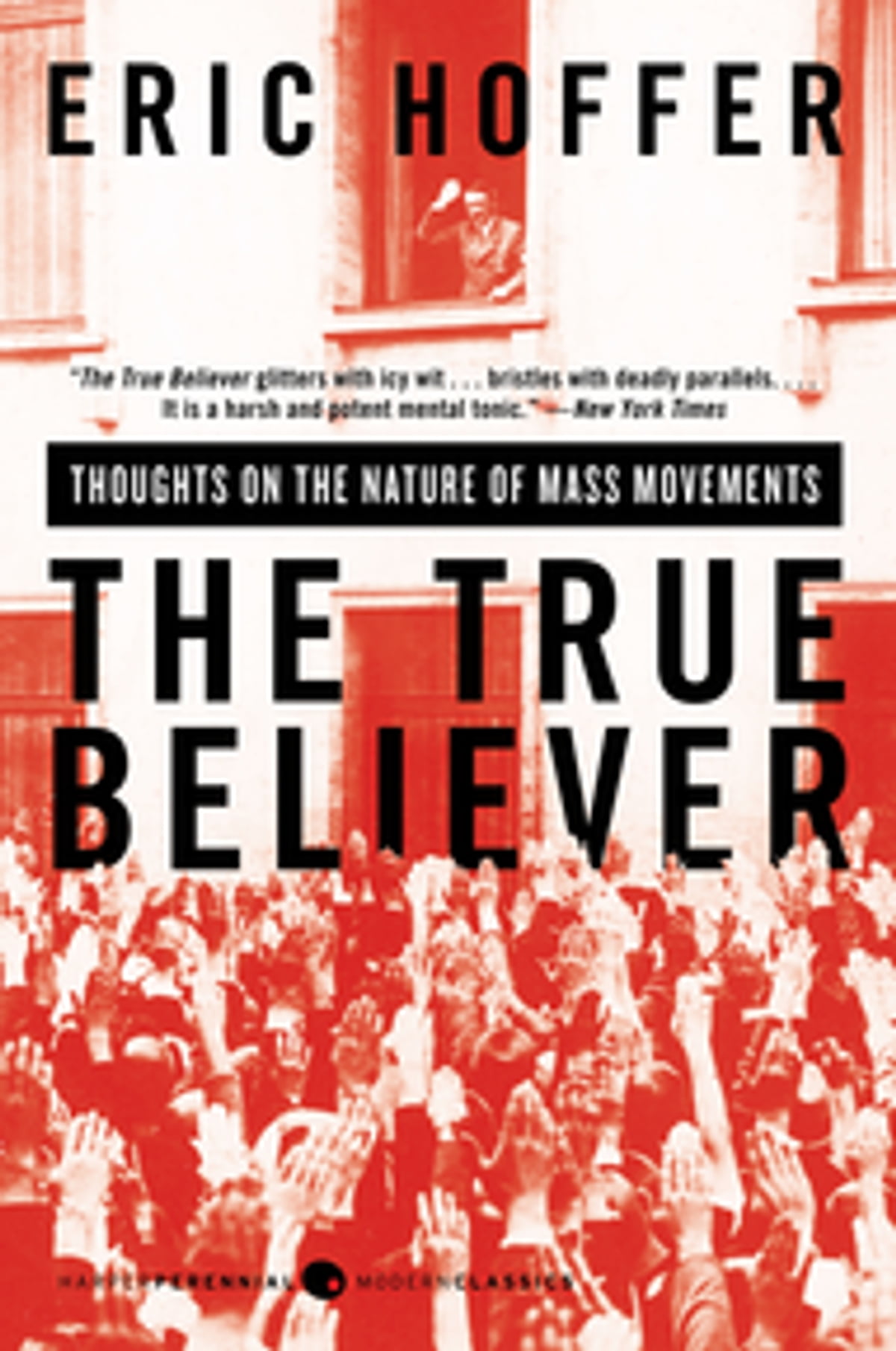“The True Believer: Thoughts on the Nature of Mass Movements”
by Eric Hoffer
 “Its theme is political fanaticism, with which it deals severely and brilliantly.” –New Yorker
“Its theme is political fanaticism, with which it deals severely and brilliantly.” –New Yorker
A stevedore on the San Francisco docks in the 1940s, Eric Hoffer wrote philosophical treatises in his spare time while living in the railroad yards. The True Believer–the first and most famous of his books–was made into a bestseller when President Eisenhower cited it during one of the earliest television press conferences.
Called a “brilliant and original inquiry” and “a genuine contribution to our social thought” by Arthur Schlesinger, Jr., this landmark in the field of social psychology is completely relevant and essential for understanding the world today as it delivers a visionary, highly provocative look into the mind of the fanatic and a penetrating study of how an individual becomes one.
In times of crisis, the great works of philosophy help us make sense of the world. The Harper Perennial Resistance Library is a special five-book series highlighting short classic works of independent thought that illuminate the nature of truth, humanity’s dangerous attraction to authoritarianism, the influence of media and mass communication, and the philosophy of resistance–all critical in understanding today’s politically charged world.
Book Review by Scott Berkun
Somewhere back in college I became familiar with The True Believer: Thoughts on the Nature of Mass Movements. It was one of those books I’d heard of, but never read, despite owning several used copies of it. Recently on twitter I posted a quote of Hoffer’s that I’d found years ago, which led to a conversation and actually reading the book.
“Faith in a holy cause is… a substitute for the lost faith in ourselves” -Eric Hoffer, The True Believer (#)
One foundation of philosophy is the question “Why do you believe what you believe?” It’s a core part of epistemology, yet rarely do we slow down enough in daily life to follow that question all the way down. We expect that the deeper we go, the firmer the answers become, but the opposite is true. Any child who continually asks “Why?” demonstrates, to the frustration of their parents, the further you go the fuzzier the answers get. It’s easy to discover, if you’re willing to dig, that many of our beliefs are absorbed socially. We simply believe what we believe because we’re around people who believe those things. Or we explicitly were told what to believe by parents or teachers early in our lives.
Belief might be primarily a social function, a matter of psychology and culture, rather than intelligence. And if it’s a social function, how can anyone who believes anything be sure it’s worth believing in? That a particular belief is morally, or even selfishly, good? Especially if they’ve never believed anything else? Are there different kinds of faith? How do you know what kind you have? These are dangerous questions. Questions most people don’t want to ask, much less do the hard work of an honest search for answers.












